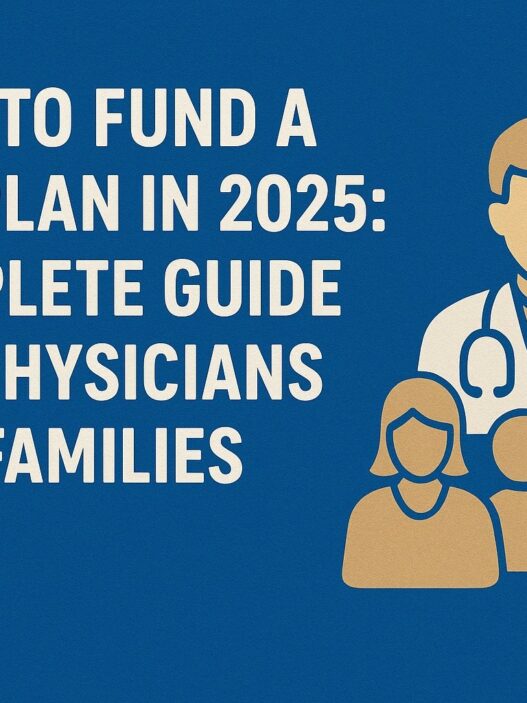Taking control of your finances is one of the most empowering things you can do for your future. Whether you're starting from scratch or trying to improve your current financial situation, 2026 is the perfect time to get your finances in order. Here's a simple and actionable guide to help you make the most of your money this year.
1. Review Your Current Financial Situation
The first step in getting your finances in order is to understand exactly where you stand. Look at your income, your debt, your savings, and your spending habits. This will help you make informed decisions moving forward.
-
Net Worth: Write down what you own (assets) and what you owe (liabilities). Subtract your liabilities from your assets, and this is your net worth. While it may not be glamorous, it's an important starting point to know where you stand financially.
-
Debt: List your debts in order of importance. Focus on high-interest debts first (like credit card balances), but also be sure to create a plan for any long-term debts you have (like mortgages or student loans).
-
Emergency Fund: Make sure you have a solid emergency fund—at least 3 to 6 months of living expenses in case something unexpected happens. If you don't have one yet, it's time to start building.
2. Set Realistic Financial Goals for the Year
Creating clear financial goals will help you stay motivated and on track. Whether it's saving for a vacation, paying down debt, or building up your emergency fund, make sure your goals are specific and achievable.
-
Short-Term Goals (3–6 months): Think about what you want to achieve in the next few months. Maybe you want to pay off a credit card, save for a small trip, or create a family budget. Set clear targets and break them down into smaller tasks.
-
Mid-Term Goals (1–3 years): These could include buying a home, saving for your kids' education, or contributing to a retirement account. The key is to keep these goals realistic and focused on what's important for you.
-
Long-Term Goals (3+ years): Your long-term goals may be related to financial independence, early retirement, or building generational wealth. These big dreams require planning, so break them down into smaller, more manageable goals.
3. Create a Practical Budget You Can Stick To
When it comes to budgeting, one size does not fit all. Instead of following a rigid, percentage-based approach, build a budget that works for you and reflects your unique needs and lifestyle. Here's how:
-
Track Your Spending: The best way to understand your money habits is to track everything you spend for at least a month. This doesn't mean obsessing over every cup of coffee, but it's helpful to see where your money is going. Write down your expenses—yes, all of them!
-
Prioritize Needs vs. Wants: Differentiate between essentials (like rent, groceries, and utilities) and things that are nice-to-haves (like dining out, subscription services, or entertainment). Focus on meeting your needs first, and then allocate the rest to wants and savings.
-
Adjust as You Go: Budgeting isn't static. Your income, expenses, and priorities may change over time, so be prepared to adjust your budget as needed. If you find you're spending too much on something, cut back where you can without feeling deprived.
4. Start Saving and Investing Wisely
The more you save, the more financial freedom you'll have. Saving for emergencies is important, but once you've built up that cushion, you'll want to focus on growing your money.
-
Build Your Emergency Fund First: If you don't have an emergency fund yet, this should be your top priority. Put aside a set amount each month until you have enough to cover several months of expenses. This will give you peace of mind in case something unexpected happens.
-
Save for Big Goals: Once your emergency fund is in place, consider saving for things like vacations, home repairs, or major life events. Breaking down these savings goals into monthly targets makes them feel more attainable.
-
Invest for the Future: Whether it's retirement, college funds for your kids, or just long-term wealth-building, investing is key. Take the time to learn about different investment options that align with your goals and risk tolerance. Consider things like low-cost index funds or other diversified investment strategies. I personally recommend consulting a professional in this area, such as a licensed financial advisor.
5. Cut Costs and Live Within Your Means
One of the simplest ways to improve your financial situation is to cut back on unnecessary expenses. If you've been living beyond your means or if you just want to free up more money for savings, here are some tips to help you live within your budget:
-
Reduce Impulse Spending: Stop buying things you don't need. This doesn't mean you can't treat yourself occasionally, but take a step back before making purchases. Wait 24 hours before buying something non-essential to see if you still want it.
-
Be Intentional About Your Wants: Before spending money on anything that isn't an immediate necessity, ask yourself, “Do I really need this right now?” If it's not contributing to your goals or adding significant value to your life, it's probably worth reconsidering.
-
Find Ways to Lower Bills: Take a look at your recurring expenses. Can you reduce your utility bills by being more mindful about energy usage? Can you shop around for lower-cost insurance or refinance your mortgage? There are always areas where you can cut back.
6. Increase Your Income When Possible
While managing your expenses is important, increasing your income can also make a significant difference in your financial outlook.
-
Side Gigs and Extra Work: If you have time, consider taking on a side gig to earn extra money. Whether it's babysitting, dog walking, freelance writing, or selling handmade crafts, find something that fits your schedule and skills.
-
Look for Ways to Grow Your Career: Focus on advancing in your career. Ask for a raise, take on more responsibility, or look for new job opportunities that align with your long-term financial goals. Increased income can make a big difference in your overall financial health.
7. Protect Your Future: Insurance & Estate Planning
As you build wealth and get your finances in order, don't forget about the importance of protecting yourself and your family.
-
Review Insurance Coverage: Make sure you have adequate health insurance, life insurance (if you have dependents), and any other necessary coverage (like disability or home insurance). Review your policies to ensure they match your current needs.
-
Create or Update Your Will: If you don't already have a will, now is the time to create one. If you already have one, review it to make sure it reflects your current wishes and circumstances. It's crucial to have a plan in place, no matter your age or financial situation.
8. Stay Focused and Track Your Progress
As you work toward your financial goals, it's important to track your progress and stay focused. Regularly check in on your spending, saving, and investing to see how you're doing.
-
Review Your Budget Monthly: Life changes, and so should your budget. Revisit it regularly to make sure you're still on track to meet your goals. Adjust as needed based on any new financial priorities or challenges that arise.
-
Celebrate Small Wins: Don't wait until you've reached the finish line to celebrate. Each step forward—whether it's paying off a credit card or saving a specific amount for a goal—is worth acknowledging. Celebrate the small wins along the way!
Final Thoughts
Getting your finances in order for 2026 doesn't require complicated systems or fancy apps—it's all about creating a practical, sustainable plan that works for your life. By reviewing your current financial situation, setting clear goals, creating a realistic budget, and focusing on saving and investing, you can achieve financial stability and peace of mind.
Remember, it's not about perfection—it's about making steady progress. Stick with it, and by the end of the year, you'll be amazed at what you've accomplished!



















